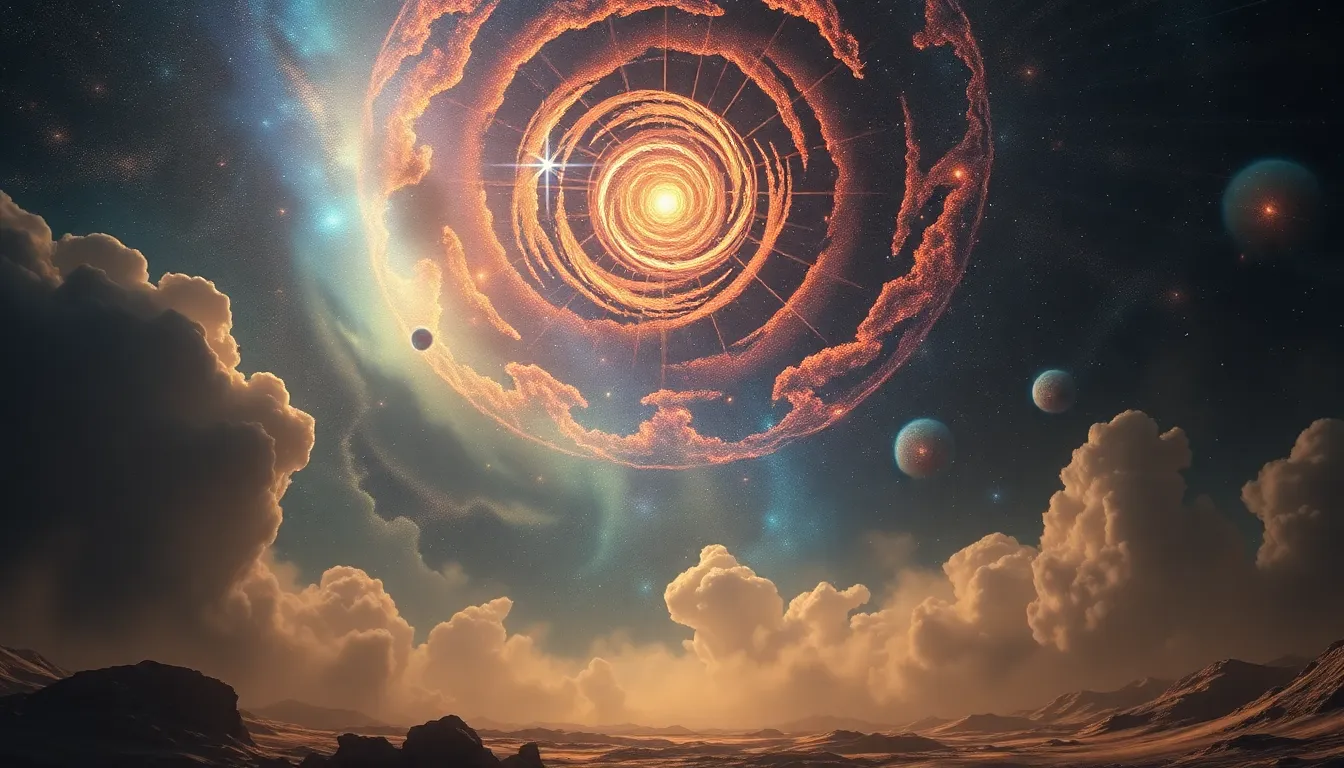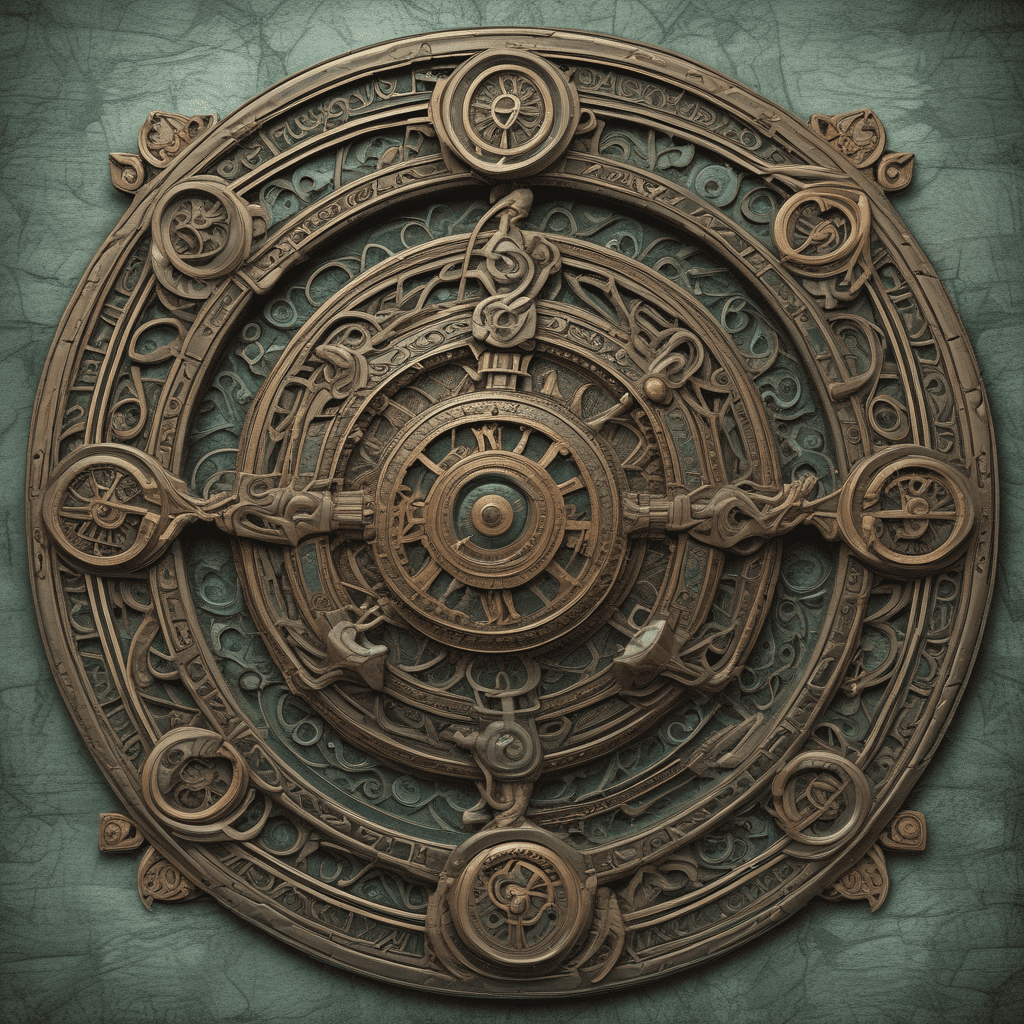The Cosmic Chronicles: How Creation Myths Document Our History
I. Introduction
Creation myths are foundational narratives that describe the origins of the universe, humanity, and the natural world. They serve as a bridge between the past and the present, offering insights into the beliefs, values, and experiences of various cultures throughout history. The importance of these myths extends beyond mere storytelling; they are critical in understanding how societies document their histories and shape their identities.
This article explores the significance of creation myths in documenting human history, examining their characteristics, historical contexts, and their evolving roles in contemporary society. Through a comparative analysis of major creation myths from diverse cultures, we will uncover how these narratives reflect the socio-political landscapes of their times and the enduring power they hold in shaping cultural identity.
II. The Nature of Creation Myths
A. Characteristics of Creation Myths
Creation myths share several defining characteristics:
- Origin Stories: They explain the beginnings of the world, life, and humanity.
- Supernatural Elements: Many involve gods, goddesses, and other supernatural beings.
- Moral Lessons: They often convey ethical teachings or lessons about human behavior.
- Symbolism: Creation myths are rich with symbols that represent deeper truths about existence.
B. Common Themes and Motifs Across Cultures
Despite the diversity of cultures, certain themes and motifs frequently recur in creation myths:
- Chaos to Order: The transformation from a chaotic state to a structured universe.
- Divine Intervention: Deities actively shaping the world and humanity.
- Human Relationships with Nature: The connection between humans and the natural world.
- Cycles of Creation and Destruction: Themes of rebirth and regeneration.
C. Variability and Adaptability of Myths Over Time
Creation myths are not static; they evolve over time, adapting to new cultural contexts and societal changes. This adaptability allows myths to remain relevant, reflecting contemporary issues while retaining their core messages.
III. The Historical Context of Creation Myths
A. How Creation Myths Reflect the Socio-Political Landscape of Their Time
Creation myths often mirror the socio-political realities of their time. For instance, the emergence of agricultural societies led to myths that emphasized the importance of land cultivation and stewardship. Similarly, the rise and fall of empires are frequently echoed in the narratives of divine favor and wrath.
B. The Role of Oral Tradition in Preserving History
Oral tradition has played a crucial role in preserving creation myths, allowing generations to pass down these stories. This tradition not only maintains cultural continuity but also serves as a repository of historical knowledge, encompassing the struggles and triumphs of a community.
C. Archaeological Findings that Support Mythological Narratives
Archaeological discoveries have often corroborated elements of creation myths. Artifacts, ancient texts, and architectural remnants provide tangible links to the narratives, reinforcing their historical significance and offering insights into the societies that created them.
IV. Comparative Analysis of Creation Myths
A. Overview of Major Creation Myths from Different Cultures
Some of the most notable creation myths include:
- Genesis: The Judeo-Christian account of creation in the Book of Genesis.
- Enuma Elish: The Babylonian myth that describes the rise of Marduk and the creation of the world from chaos.
- Popol Vuh: The Mayan creation narrative that explores the creation of humans and the world by the gods.
B. Similarities and Differences in Themes and Messages
While these myths share common themes, such as the struggle between chaos and order, they also reflect distinct cultural values and beliefs. For instance, the Genesis creation story emphasizes a singular, omnipotent creator, while the Enuma Elish highlights the importance of divine hierarchy and conflict.
C. The Influence of Geography and Environment on Myth Development
The geographical and environmental contexts of cultures significantly influence their creation myths. For example, societies in arid regions may emphasize water and fertility in their narratives, while those near mountains or forests may focus on the majesty of nature and its deities.
V. Creation Myths as Cultural Identity
A. How Myths Shape National and Cultural Identities
Creation myths are vital in shaping national and cultural identities. They create a shared narrative that unites individuals within a community, fostering a sense of belonging and purpose.
B. Myths as a Tool for Moral and Ethical Guidance
Many creation myths impart moral lessons, guiding individuals in their behavior and interactions within society. They often serve as a framework for understanding right and wrong, shaping the ethical compass of cultures.
C. The Role of Myths in Unifying Communities
Myths can be powerful tools for unifying communities, especially in times of crisis or conflict. By reaffirming shared beliefs and values, they help to maintain social cohesion and collective identity.
VI. The Psychological Perspective on Creation Myths
A. Carl Jung and the Collective Unconscious
Carl Jung’s concept of the collective unconscious posits that shared symbols and archetypes exist across cultures. Creation myths often tap into these universal archetypes, resonating with human experiences and emotions.
B. Creation Myths as Reflections of Human Psyche and Existential Questions
Creation myths address fundamental existential questions about life, purpose, and the nature of existence. They reflect humanity’s quest for meaning and understanding in a complex world.
C. The Therapeutic Value of Myths in Contemporary Society
In modern times, creation myths can offer therapeutic value, providing individuals with narratives that help them navigate personal and societal challenges. They can serve as tools for reflection, healing, and growth.
VII. Myths in Modern Context
A. The Reinterpretation of Creation Myths in Contemporary Literature and Media
Many contemporary authors and filmmakers reinterpret creation myths, weaving them into modern narratives that resonate with today’s audiences. This reinterpretation can breathe new life into ancient stories, making them relevant for new generations.
B. How Modern Science Interacts with Traditional Creation Narratives
The relationship between modern science and traditional creation myths can be complex. While scientific explanations of the universe’s origins may challenge literal interpretations of myths, they can also coexist, offering different perspectives on existence.
C. The Role of Technology in Myth Dissemination and Evolution
Technology has revolutionized how myths are shared and understood. The internet and social media enable the rapid spread of mythological narratives, allowing for cross-cultural exchanges and adaptations.
VIII. Debates and Controversies
A. The Clash Between Scientific Explanations and Mythological Narratives
The tension between scientific explanations and mythological narratives can lead to debates about the validity and relevance of these stories. Some argue that myths should not be dismissed, as they embody cultural truths and wisdom.
B. Cultural Appropriation and the Ethical Considerations in Myth Studies
As creation myths gain global attention, issues of cultural appropriation arise. Scholars and practitioners must navigate the ethical implications of studying and sharing these narratives, ensuring respect for their origins.
C. The Impact of Globalization on the Preservation of Indigenous Creation Myths
Globalization poses both challenges and opportunities for the preservation of indigenous creation myths. While it can lead to the dilution of traditional narratives, it also offers platforms for indigenous voices to share their stories with a broader audience.
IX. Future of Creation Myths
A. The Evolving Role of Creation Myths in an Increasingly Secular World
As societies become more secular, creation myths may evolve in their roles, adapting to new understandings of existence while maintaining their significance in cultural narratives.
B. Potential for New Creation My



